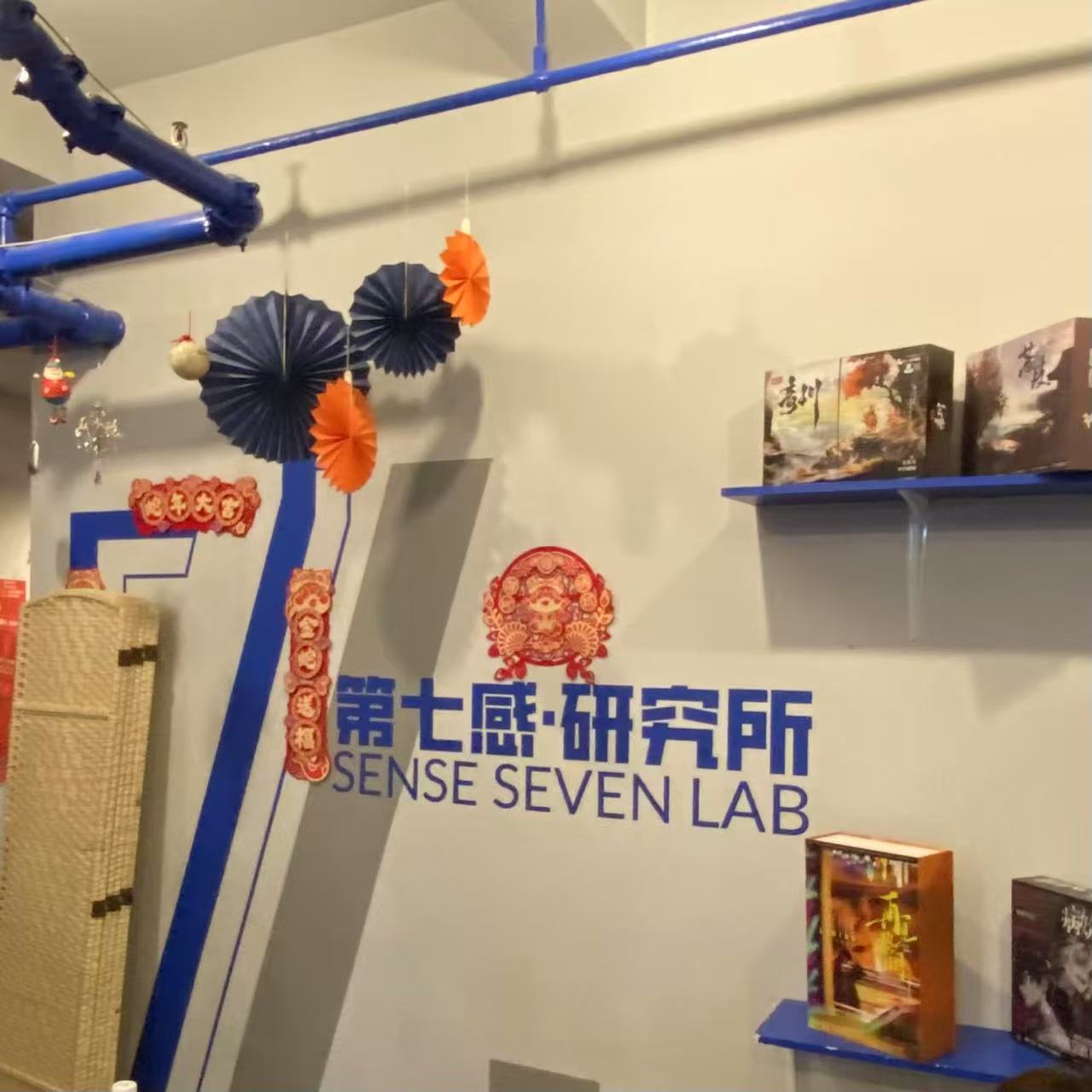
Live-Action Script Game 剧本杀
By Tiffany Xinran Wang | Columbia Radio News
Duration: 04:11

Live-Action Script Game 剧本杀
By Tiffany Xinran Wang | Columbia Radio News
Duration: 04:11
Tiffany: In New York City, friends and friends-to-bes are gathering to play a new kind of role-playing game.
In Chinese, it's called juubensha. And it's a chance for people to become strange characters and play out dramatic scenes with each other.
A lot of juubensha rooms nestle in old buildings near Koreatown. When you step out of the cranky elevator, it’s a whole new world.
[room noise]
This is Sense Seven Lab. Tonight, Chloe Li and her friends are acting out a play stemmed from Chinese mythology.
Chloe: it's almost like we are watching a broadway show, but you're one of the actor or actress.
They are handed a packet of information about their characters.
Chloe is playing an old man who opened up a tavern for lovers to come together. He’s kind of like the Chinese cupid. She starts by introducing her character to the other players and the whole night is performed in Mandarin.
Chloe: I'm Yue Lao...(in Mandarin)
And then, a paid actor starts the drama. Perhaps there is a murder, or a poignant love story. What happens next is up to their acting and interactions.
Chloe’s favorite script is set in an unspecified time in ancient China and her favorite role is this girl who eventually becomes an empress of her land.
Chloe: She was abandoned by her father and she went through a lot of child abuse. A lot of people was bullying her and her boyfriend left her, cheated on her, and her sister, or like, her friends betrayed her. A lot of things like that but she didn't just give up.
I feel like we went through something similar. We share a lot of things in common, but I hope in the future, one day, I can become like as successful as her.
There are many types of juubensha scripts: some are crime-based, some are emotional ones that bring players into their characters’ journeys and they’d feel like they've had a whole life.
Chloe: I felt like I don't have to be by myself, so I can resonate with some other people and then we feel the same thing, so I can just like feel detached with the real world for like a couple hours.
Chloe says these games go on for seven to eight hours at the very least and often up to 12 hours.
The whole night is helped along by professional actors like Dakki Ji, who manages another juubensha shop called Noah’s Ark. She’s a 22-year-old Theater major at Barnard College.
Dakki: Their acting sometimes gives information, or sometimes makes the players more, um, I don't know, empathize with the whole story. And yeah, it's more, it's kind of like "Sleep No More", if you know about that. Because it's like a whole immersive experience for the players.
Dakki says they source their scripts from juubensha exhibitions in China. And they charge $60-120 per person for the night.
From the players, to actors, to store managers, everyone in this industry is staying because they love acting and the art of juubensha.
The manager of Sense Seven Lab is Christina Zhen. She was trained in Public Health, but likes this job better.
Christina Zhen says she takes a percentage from the store’s revenue and her earnings vary from $3,000-6,000 a month.
Christina: We love acting. We love staying with different people and then bring up different performance to them and why we are doing it so long, even though we're not gaining like a lot, a lot of profit, but we're still doing that because of the place, and then the people who are staying with us.
As for Chloe’s game where she was the old man in Chinese mythology, the game went until 5 a.m. in the morning. The old man actually opened the tavern to reunite with his own lover. When he eventually met her again after hundreds of years, she asked him: have I seen you before? And he said: I’ve been waiting for you.
From Columbia Radio News, I’m Tiffany Wang.